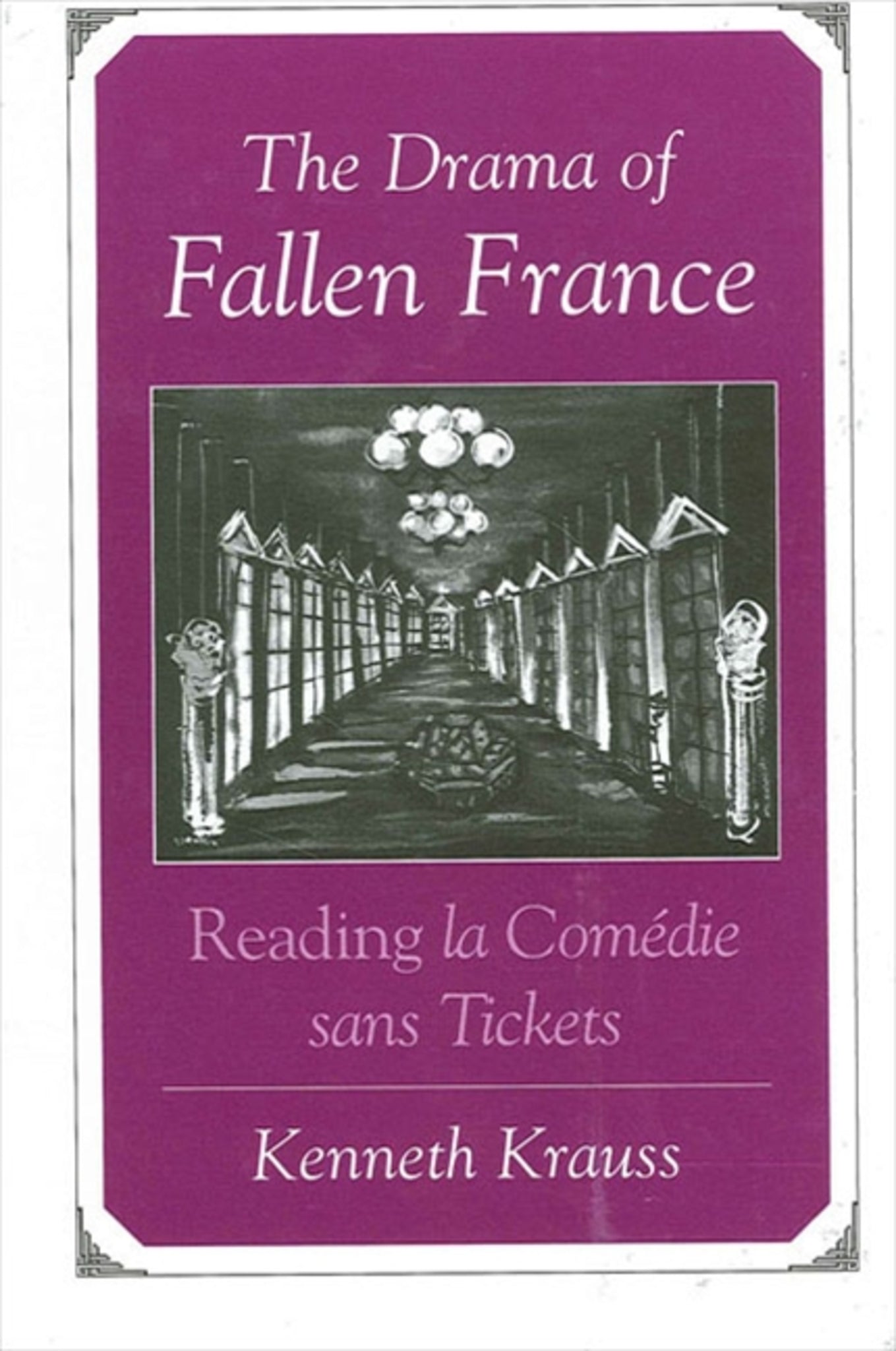We're sorry. An error has occurred
Please cancel or retry.
The Drama of Fallen France

Some error occured while loading the Quick View. Please close the Quick View and try reloading the page.
Couldn't load pickup availability
- Format:
-
04 December 2003

Examines the role of the theatre in Paris during the Nazi occupation.
The Drama of Fallen France examines various dramatic works written and/or produced in Paris during the four years of Nazi occupation and explains what they may have meant to their original audiences. Because of widespread financial support from the new French government at Vichy, the former French capital underwent a renaissance of theatre during this period, and both the public playhouses and the private theatres provided an amazing array of new productions and revivals. Some of the plays considered here are well known: Anouilh's Antigone, Sartre's The Flies, Claudel's The Satin Slipper. Others have remained obscure, such as Cocteau's The Typewriter, Giraudoux's The Apollo of Marsac, and Montherlant's Nobody's Son; and two-André Obey's Eight Hundred Meters and Simone Jollivet's The Princess of Ursins-have remained virtually unread since the early 1940s. In examining French culture under the Vichy regime and the Nazis, Kenneth Krauss links the politics of gender and sexuality with the more traditional political concepts of collaboration and resistance. A final chapter on Truffaut's 1980 film, The Last Métro, demonstrates how the present manages to rewrite and revision the complex and seemingly contradictory reality of the past.


Illustrations
Acknowledgments
Overture
1. A Queer Premiere: Jean Cocteau's The Typewriter
2. Collabo Beefcake and Resistant Reception: Ambiguity in André Obey's Eight Hundred Meters and The Suppliant Women
3. French Identity: The Intended Audience for Jean Giraudoux's The Apollo of Marsac
4. The Limits of Opportunism: Simone Jollivet's The Princess of Ursins
5. The Politics of Intention: Jean Anouilh's Antigone via Oreste
6. The Politics of Reception: Jean-Paul Sartre's The Flies
7. A Politics of Sexuality: Henry de Montherlant's Nobody's Son
8. The Politics of Impersonation: Casting and Recasting Paul Claudel's The Satin Slipper
Epilogue: Catching The Last Métro: Francois Truffaut's Portrayal of Occupation Drama and Sexuality
Finale
Notes
Bibliography
Name Index and Literary Works



